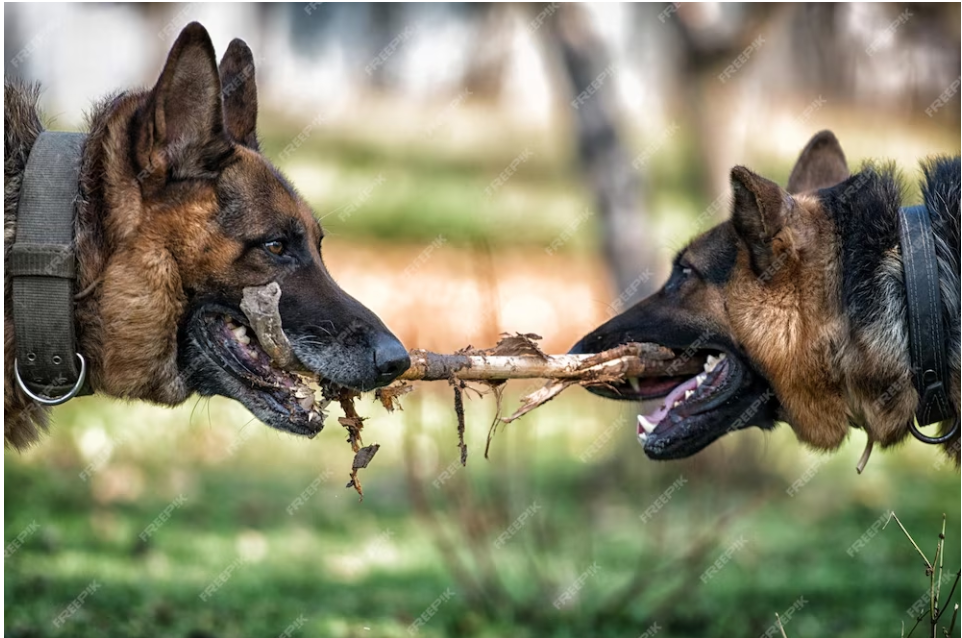Dogs are known for their loyalty and companionship, but sometimes, they can exhibit aggressive behavior towards each other, leading to fights. Dog fights can be distressing for both pets and their owners, and addressing this issue is crucial for a harmonious household.
In this blog, we will explore effective strategies to prevent and stop dogs from fighting, ensuring a safe and peaceful coexistence.
Identify the Triggers
The first step in addressing dog fights is understanding what triggers them. Dog fights can erupt for various reasons, such as:
a) Territorial disputes
b) Resource guarding (food, toys, or attention)
c) Fear or anxiety
d) Unfamiliarity with one another
e) Social hierarchy struggles
By identifying the specific triggers that lead to fights, you can better tailor your approach to addressing the issue. Once you have identified the triggers, it is time to get to work.
The chances of your dog’s fighting with each other can be significantly reduced by doing the following:
Spay/Neuter Your Dogs
Spaying or neutering your dogs can help reduce aggression in some cases. Hormones play a significant role in aggressive behavior, and altering your pets can lessen their urge to compete for mates and territory. Consult your veterinarian for advice on the appropriate timing for spaying or neutering your dogs.
Socialization and Training
Early socialization is crucial to help dogs develop appropriate social skills. If your dogs are not used to being around other dogs, they may react aggressively when they encounter them. Start socializing them at a young age by exposing them to various people, animals, and environments. Puppy training classes and professional trainers can provide structured socialization opportunities and teach your dogs how to interact appropriately with others.
Establish Clear Hierarchy
Dogs are pack animals and naturally form hierarchies within their social groups. Establishing a clear hierarchy in your household can reduce conflicts. Ensure that you, as the owner, are the alpha or pack leader. Dogs should respect your authority and follow your commands.
Supervision
Never leave your dogs unsupervised if they have a history of fighting. Supervision is crucial to prevent fights from escalating. When your dogs are together, watch their body language closely for signs of tension, such as raised hackles, growling, or stiff postures. At the first sign of tension, intervene and redirect their attention to a positive activity.
Separate Feeding Areas
Resource guarding, especially around food, can trigger fights between dogs. To avoid this, feed your dogs in separate areas, and make sure they cannot access each other’s food bowls. This reduces the potential for food-related conflicts.
Consult a Professional
If your dog’s fighting behavior persists or escalates, consider seeking professional help. A certified dog trainer or a veterinary behaviorist can assess the situation, provide a tailored behavior modification plan, and work with you to address the root causes of the fights. Professional guidance can be instrumental in resolving complex aggression issues.
Use a Leash and Muzzle
When introducing dogs that have a history of fighting or are prone to aggression, use a leash and muzzle as safety measures. This allows you to have control over their interactions while preventing injuries. Muzzling should be done gradually and positively reinforced, so your dog associates it with positive experiences.
Create Separate Spaces
To minimize opportunities for conflict, provide separate resting and play areas for your dogs. This can include separate crates, beds, and toys. Having their own space allows each dog to relax and have a sense of ownership.
Manage Energy Levels
Excess energy can lead to restless behavior and potentially trigger fights. Ensure your dog’s receive sufficient physical and mental exercise through daily walks, playtime, and interactive toys. A tired dog is less likely to engage in aggressive behavior.
Seek Veterinary Advice
Sometimes, medical issues can contribute to aggression in dogs. If you notice a sudden change in your dog’s behavior or suspect they may be in pain, consult your veterinarian for a thorough examination. Addressing any underlying health concerns can help improve their overall demeaner.
Off Leash K9 Training in Boca Raton plays a crucial role in preventing dog fights by teaching essential obedience skills and reinforcing positive behaviors. Our expert trainers focus on socialization, impulse control, and effective communication, helping dogs understand their place in the pack and how to interact peacefully with other dogs.
Through structured training programs, we address aggression triggers, redirecting their energy toward constructive activities. Off Leash K9 Training also promotes trust and respect, reducing dominance-related conflicts. With our training, you can ensure that your dog’s coexist harmoniously, minimizing the risk of fights and creating a safe and enjoyable environment for both your pets and your family. We help families every day with issues like this. Give us a call!
561-513-5333


